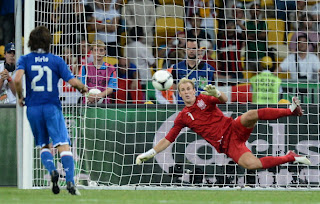There is more and more acknowledgement of the effects of weak sun on our mental state. Seasonal affective disorder (SAD) is now recognised as a genuine condition, and "SAD lamps" are doing great business this winter.
 Meanwhile, anyone who's done biology at school can tell you that a lack of vitamin D, which our bodies generate through contact with sunlight, can lead to rickets. But the list of serious ailments linked to insufficient vitamin D keeps growing. Recent research has even reinforced the link between vitamin D deficiency and Multiple Sclerosis (see the MS Society for more information).
Meanwhile, anyone who's done biology at school can tell you that a lack of vitamin D, which our bodies generate through contact with sunlight, can lead to rickets. But the list of serious ailments linked to insufficient vitamin D keeps growing. Recent research has even reinforced the link between vitamin D deficiency and Multiple Sclerosis (see the MS Society for more information).
Given that the winter sun in the UK is not strong enough to enable our bodies to create the vitamin D we need, it's vital we get the vitamin from other sources. There's some in oily fish and eggs, as well as fortified breakfast cereals and margarine. But given the overwhelming evidence around vitamin D, surely it should be added to more staple foods in order to ensure the population gets what it needs? It would even make sense to add it to mince pies, yule logs, christmas pudding, advent calendar treats and anything else we tend to guzzle during the dark midwinter. Fortified brussel sprouts anyone?
















